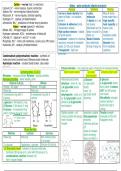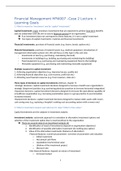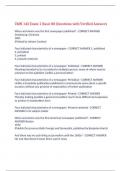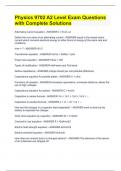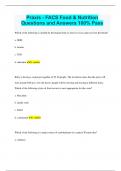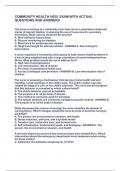Summary
Summary OCR Biology Biological molecules 2.1.2 revision notes - By A* student
- Course
- Institution
A revision summary of OCR Biology Biological Molecules 2.1.2 Made by a student who achieved A* in A level Biology. Covers all the points within the OCR Biology Specification. Condenses 3 OCR specification books and class notes.
[Show more]
